Quentin Crisp is a Actor and Writer American born on 25 december 1908
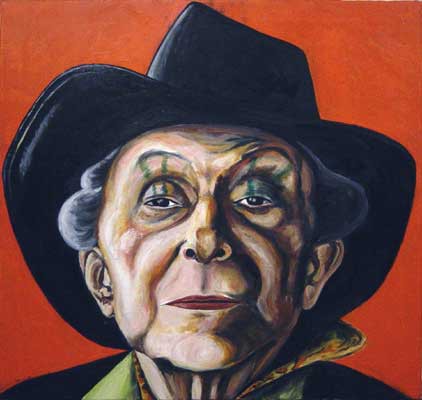
Quentin Crisp (born Denis Charles Pratt, (1908-12-25)25 December 1908 – 21 November 1999(1999-11-21)) was an English writer and raconteur.
From a conventional suburban background Crisp grew up with feminine tendencies exemplified by his make-up and painted nails and work as a rent-boy. He then spent thirty years as a professional model for life-classes in art colleges. The interviews he gave about his unusual life attracted increasing public curiosity and he was soon sought after for his highly individual views on social manners and the cultivating of style. His one-man stage show was a long-running hit both in England and America and he also appeared in films and on TV. Crisp possessed a contrarian streak, criticising both gay liberation and Diana, Princess of Wales.
Denis Charles Pratt was born in Sutton, Surrey, the fourth child of solicitor Spencer Charles Pratt (1871–1931) and former governess Frances Marion Pratt (née Phillips; 1873–1960). His elder siblings were Katherine (1901–1976), Gerald (1902–1983) and Lewis (1907–1968). He changed his name to Quentin Crisp in his twenties after leaving home and cultivating his effeminate appearance to a standard that both shocked contemporary Londoners and provoked homophobic attacks.
By his own account Crisp was effeminate in behaviour from an early age and found himself the object of teasing at Kingswood House School in Epsom, from which he won a scholarship to Denstone College, Uttoxeter, in 1922. After leaving school in 1926 Crisp studied journalism at King's College London but failed to graduate in 1928 going on to take art classes at the Regent Street Polytechnic.
Around this time Crisp began visiting the cafés of Soho – his favourite being The Black Cat in Old Compton Street – meeting other young homosexual men and rent-boys, and experimenting with make-up and women's clothes. For six months he worked as a male sex worker, looking for love, he said in a 1999 interview, but finding only degradation.
Crisp left home to move to the centre of London at the end of 1930 and after dwelling in a succession of flats found a bed-sitting room in Denbigh Street where he "held court with London's brightest and roughest characters." His outlandish appearance – he wore bright make-up, dyed his long hair crimson, painted his fingernails and wore sandals to display his painted toe-nails – brought admiration and curiosity from some quarters, but generally attracted hostility and violence from strangers passing him in the streets.
Middle years
Crisp attempted to join the British army at the outbreak of World War II but was rejected and declared exempt by the medical board on the grounds that he was "suffering from sexual perversion". He remained in London during the 1941 Blitz, stocked up on cosmetics, purchased five pounds of henna and paraded through the black-out, picking up G.I.s, whose kindness and open-mindedness inspired his love of all things American.
In 1940 he moved into the bed-sitting room he would occupy for over four decades, the first floor apartment at 129 Beaufort Street. Here he stayed until he emigrated to the United States in 1981. In the intervening years he never attempted any housework, saying famously in his memoir: "After the first four years the dirt doesn't get any worse".
He left his job as engineer's tracer in 1942 to become a model in life classes in London and the Home Counties, and continued posing for artists for the next three decades. "It was like being a civil servant," he explained in his autobiography, "except that you were naked." Pamela Green, who went on to be a famous glamour model of the 1950s and '60s, remembers him at Saint Martin's School of Art, as “very thin with a skin so white it almost had a greenish tinge”.
Crisp had published three short books by the time he came to write The Naked Civil Servant at the urging of agent Donald Carroll. Crisp wanted to call it I Reign In Hell, referencing Paradise Lost ("Better to reign in Hell, than serve in Heaven"). Carroll insisted on The Naked Civil Servant, an insistence that later gave him pause when he offered the manuscript to Tom Maschler of Jonathan Cape on the same day that Desmond Morris delivered The Naked Ape. The book was published in 1968 to generally good reviews. Subsequently Crisp was approached by documentary maker Denis Mitchell to be the subject of a short film in which he was expected to talk about his life, voice his opinions, and sit around in his flat filing his nails. This broadcast brought enough attention to Crisp and his book that he soon entered talks about a television drama serial based on the memoir.
Fame
In 1975 the television version of The Naked Civil Servant was broadcast on British and US television and made both actor John Hurt and Crisp himself into stars. This success launched Crisp in a new direction: that of performer and tutor. He devised a one-man show and began touring the country with it. The first half of the show was an entertaining monologue loosely based on his memoirs, the second half was a question-and-answer session with Crisp picking the audience's written questions at random and answering them in an amusing manner.
When his autobiography was reprinted in 1975 after the success of the television version of The Naked Civil Servant, Gay News commented that the book should have been published posthumously (Crisp commented that this was their polite way of telling him to drop dead). Gay rights campaigner Peter Tatchell claimed to have met Crisp in 1974 and alleged that he was not sympathetic to the Gay Liberation movement of the time. Tatchell claimed that Crisp asked him: "What do you want liberation from? What is there to be proud of? I don't believe in rights for homosexuals."
By now Crisp was a theatre-filling raconteur. His one-man show sold out the Duke of York's Theatre in London in 1978. Crisp then took the show to New York. His first stay in the Hotel Chelsea coincided with a fire, a robbery, and the death of Nancy Spungen. Crisp decided to move to New York permanently and set about making arrangements. In 1981, he arrived with few possessions and found a small apartment on East 3rd Street in Manhattan's East Village.
As he had done in London, Crisp allowed his telephone number to be listed in the telephone directory and saw it as his duty to converse with anyone who called him. For the first twenty or so years of owning his own telephone he habitually answered calls with the phrase: "Yes, Lord?" ("Just in case," he once said.) Later on he changed it to: "Oh yes?" in a querulous tone of voice. His openness to strangers extended to accepting dinner invitations from almost anyone. Whilst he expected the host would pay for dinner, Crisp did his best to "sing for his supper" by regaling his host with wonderful stories and yarns much as he did in his theatrical performances. Dinner with him was said to be one of the best shows in New York.
He continued to perform his one-man show, published ground-breaking books on the importance of contemporary manners as a means of social inclusiveness as opposed to etiquette which he claimed is socially exclusive, and supported himself by accepting social invitations and writing movie reviews and columns for UK and US magazines and newspapers. He said that provided one could exist on peanuts and champagne, one could quite easily live by going to every cocktail party, premiere and first night to which one was invited.
Crisp also acted on television and in films. He made his debut as a film actor in the Royal College of Art's low-budget production of Hamlet (1976). Crisp played Polonius in the 65-minute adaptation of Shakespeare's play, supported by Helen Mirren, who doubled as Ophelia and Gertrude. He appeared in the 1985 film The Bride, which brought him into contact with Sting, who played the lead role of Baron Frankenstein. He appeared on the television show The Equalizer in the 1987 episode "First Light" and as the narrator of director Richard Kwietniowski's short film Ballad of Reading Gaol (1988), based on the poem by Oscar Wilde. Four years later he was cast in a lead role, and got top billing, in the low-budget independent film Topsy and Bunker: The Cat Killers, playing the door-man of a flea-bag hotel in a run-down neighbourhood quite like the one he dwelled in. According to director Thomas Massengale, Crisp was a delight to work with.
The 1990s would prove to be his most prolific decade as an actor as more and more directors offered him roles. In 1992 he was persuaded by Sally Potter to play Elizabeth I in the film Orlando. Although he found the role taxing he won acclaim for a dignified and touching performance. Crisp next had an uncredited cameo in the 1993 AIDS drama Philadelphia. Crisp accepted some other small bit parts and cameos such as a pageant judge in 1995's To Wong Foo Thanks for Everything, Julie Newmar. Crisp's last role was in an independent film called American Mod (1999), and his last full-feature movie was HomoHeights (also released as Happy Heights, 1996). He was chosen by Channel 4 to deliver the first "Alternative Christmas Speech", a counterpoint to the Queen's Christmas speech, in 1993.
Last years
Crisp remained fiercely independent and unpredictable into old age. He caused controversy and confusion in the gay community by jokingly calling AIDS "a fad", and homosexuality "a terrible disease". He was continually in demand from journalists requiring a sound-bite and throughout the 1990s his commentary was sought on any number of topics.
Crisp was a stern critic of Diana, Princess of Wales and her attempts to gain public sympathy following her divorce from Prince Charles. He stated: "I always thought Diana was such trash and got what she deserved. She was Lady Diana before she was Princess Diana so she knew the racket. She knew that royal marriages have nothing to do with love. You marry a man and you stand beside him on public occasions and you wave and for that you never have a financial worry until the day you die." Following her death in 1997, he commented that it was perhaps her "fast and shallow" lifestyle that led to her demise: "She could have been Queen of England – and she was swanning about Paris with Arabs. What disgraceful behaviour! Going about saying she wanted to be the queen of hearts. The vulgarity of it is so overpowering."
In 1995 he was among the many people interviewed for The Celluloid Closet an historical documentary addressing how Hollywood films have depicted homosexuality. In his third volume of memoirs Resident Alien published in the same year, Crisp stated that he was close to the end of his life, though he continued to make public appearances and in June of that year he was one of the guest entertainers at the second Pride Scotland festival in Glasgow.
In 1997 Quentin Crisp was crowned king of the Beaux Arts ball run by the Beaux Arts Society. He presided alongside Queen Audrey Kargere, Prince George Bettinger and Princess Annette Hunt.
In December 1998 he celebrated his ninetieth birthday performing the opening night of his one-man show, An evening with Quentin Crisp, at The Intar Theatre on Forty-Second Street in New York City (produced by John Glines of The Glines organisation). A humorous pact he had made with Penny Arcade to live to be a century old, with a decade off for good behaviour, proved prophetic. Crisp died of a heart attack in November 1999 nearly one month before his 91st birthday in Chorlton-cum-Hardy in Manchester on the eve of a nationwide revival of his one-man show. He was cremated with a minimum of ceremony as he had requested and his ashes were flown back to Phillip Ward in New York. He bequeathed all future UK-only income (but not the copyrights which belong to Stedman Mays, Mary Tahan and Phillip Ward and are managed by Ward) from his entire literary estate to the two men he considered to have had the greatest influence on his career: Richard Gollner his long-time agent, and Donald Carroll. His estate at death was valued in excess of $600,000.
Source : Wikidata
Quentin Crisp

- Infos
- Photos
- Best films
- Family
- Characters
- Awards
Birth name Denis Charles Pratt
Nationality USA
Birth 25 december 1908
Death 21 november 1999 (at 90 years) at Chorlton-cum-Hardy (United-kingdom)
Nationality USA
Birth 25 december 1908
Death 21 november 1999 (at 90 years) at Chorlton-cum-Hardy (United-kingdom)
From a conventional suburban background Crisp grew up with feminine tendencies exemplified by his make-up and painted nails and work as a rent-boy. He then spent thirty years as a professional model for life-classes in art colleges. The interviews he gave about his unusual life attracted increasing public curiosity and he was soon sought after for his highly individual views on social manners and the cultivating of style. His one-man stage show was a long-running hit both in England and America and he also appeared in films and on TV. Crisp possessed a contrarian streak, criticising both gay liberation and Diana, Princess of Wales.
Biography
Early lifeDenis Charles Pratt was born in Sutton, Surrey, the fourth child of solicitor Spencer Charles Pratt (1871–1931) and former governess Frances Marion Pratt (née Phillips; 1873–1960). His elder siblings were Katherine (1901–1976), Gerald (1902–1983) and Lewis (1907–1968). He changed his name to Quentin Crisp in his twenties after leaving home and cultivating his effeminate appearance to a standard that both shocked contemporary Londoners and provoked homophobic attacks.
By his own account Crisp was effeminate in behaviour from an early age and found himself the object of teasing at Kingswood House School in Epsom, from which he won a scholarship to Denstone College, Uttoxeter, in 1922. After leaving school in 1926 Crisp studied journalism at King's College London but failed to graduate in 1928 going on to take art classes at the Regent Street Polytechnic.
Around this time Crisp began visiting the cafés of Soho – his favourite being The Black Cat in Old Compton Street – meeting other young homosexual men and rent-boys, and experimenting with make-up and women's clothes. For six months he worked as a male sex worker, looking for love, he said in a 1999 interview, but finding only degradation.
Crisp left home to move to the centre of London at the end of 1930 and after dwelling in a succession of flats found a bed-sitting room in Denbigh Street where he "held court with London's brightest and roughest characters." His outlandish appearance – he wore bright make-up, dyed his long hair crimson, painted his fingernails and wore sandals to display his painted toe-nails – brought admiration and curiosity from some quarters, but generally attracted hostility and violence from strangers passing him in the streets.
Middle years
Crisp attempted to join the British army at the outbreak of World War II but was rejected and declared exempt by the medical board on the grounds that he was "suffering from sexual perversion". He remained in London during the 1941 Blitz, stocked up on cosmetics, purchased five pounds of henna and paraded through the black-out, picking up G.I.s, whose kindness and open-mindedness inspired his love of all things American.
In 1940 he moved into the bed-sitting room he would occupy for over four decades, the first floor apartment at 129 Beaufort Street. Here he stayed until he emigrated to the United States in 1981. In the intervening years he never attempted any housework, saying famously in his memoir: "After the first four years the dirt doesn't get any worse".
He left his job as engineer's tracer in 1942 to become a model in life classes in London and the Home Counties, and continued posing for artists for the next three decades. "It was like being a civil servant," he explained in his autobiography, "except that you were naked." Pamela Green, who went on to be a famous glamour model of the 1950s and '60s, remembers him at Saint Martin's School of Art, as “very thin with a skin so white it almost had a greenish tinge”.
Crisp had published three short books by the time he came to write The Naked Civil Servant at the urging of agent Donald Carroll. Crisp wanted to call it I Reign In Hell, referencing Paradise Lost ("Better to reign in Hell, than serve in Heaven"). Carroll insisted on The Naked Civil Servant, an insistence that later gave him pause when he offered the manuscript to Tom Maschler of Jonathan Cape on the same day that Desmond Morris delivered The Naked Ape. The book was published in 1968 to generally good reviews. Subsequently Crisp was approached by documentary maker Denis Mitchell to be the subject of a short film in which he was expected to talk about his life, voice his opinions, and sit around in his flat filing his nails. This broadcast brought enough attention to Crisp and his book that he soon entered talks about a television drama serial based on the memoir.
Fame
In 1975 the television version of The Naked Civil Servant was broadcast on British and US television and made both actor John Hurt and Crisp himself into stars. This success launched Crisp in a new direction: that of performer and tutor. He devised a one-man show and began touring the country with it. The first half of the show was an entertaining monologue loosely based on his memoirs, the second half was a question-and-answer session with Crisp picking the audience's written questions at random and answering them in an amusing manner.
When his autobiography was reprinted in 1975 after the success of the television version of The Naked Civil Servant, Gay News commented that the book should have been published posthumously (Crisp commented that this was their polite way of telling him to drop dead). Gay rights campaigner Peter Tatchell claimed to have met Crisp in 1974 and alleged that he was not sympathetic to the Gay Liberation movement of the time. Tatchell claimed that Crisp asked him: "What do you want liberation from? What is there to be proud of? I don't believe in rights for homosexuals."
By now Crisp was a theatre-filling raconteur. His one-man show sold out the Duke of York's Theatre in London in 1978. Crisp then took the show to New York. His first stay in the Hotel Chelsea coincided with a fire, a robbery, and the death of Nancy Spungen. Crisp decided to move to New York permanently and set about making arrangements. In 1981, he arrived with few possessions and found a small apartment on East 3rd Street in Manhattan's East Village.
As he had done in London, Crisp allowed his telephone number to be listed in the telephone directory and saw it as his duty to converse with anyone who called him. For the first twenty or so years of owning his own telephone he habitually answered calls with the phrase: "Yes, Lord?" ("Just in case," he once said.) Later on he changed it to: "Oh yes?" in a querulous tone of voice. His openness to strangers extended to accepting dinner invitations from almost anyone. Whilst he expected the host would pay for dinner, Crisp did his best to "sing for his supper" by regaling his host with wonderful stories and yarns much as he did in his theatrical performances. Dinner with him was said to be one of the best shows in New York.
He continued to perform his one-man show, published ground-breaking books on the importance of contemporary manners as a means of social inclusiveness as opposed to etiquette which he claimed is socially exclusive, and supported himself by accepting social invitations and writing movie reviews and columns for UK and US magazines and newspapers. He said that provided one could exist on peanuts and champagne, one could quite easily live by going to every cocktail party, premiere and first night to which one was invited.
Crisp also acted on television and in films. He made his debut as a film actor in the Royal College of Art's low-budget production of Hamlet (1976). Crisp played Polonius in the 65-minute adaptation of Shakespeare's play, supported by Helen Mirren, who doubled as Ophelia and Gertrude. He appeared in the 1985 film The Bride, which brought him into contact with Sting, who played the lead role of Baron Frankenstein. He appeared on the television show The Equalizer in the 1987 episode "First Light" and as the narrator of director Richard Kwietniowski's short film Ballad of Reading Gaol (1988), based on the poem by Oscar Wilde. Four years later he was cast in a lead role, and got top billing, in the low-budget independent film Topsy and Bunker: The Cat Killers, playing the door-man of a flea-bag hotel in a run-down neighbourhood quite like the one he dwelled in. According to director Thomas Massengale, Crisp was a delight to work with.
The 1990s would prove to be his most prolific decade as an actor as more and more directors offered him roles. In 1992 he was persuaded by Sally Potter to play Elizabeth I in the film Orlando. Although he found the role taxing he won acclaim for a dignified and touching performance. Crisp next had an uncredited cameo in the 1993 AIDS drama Philadelphia. Crisp accepted some other small bit parts and cameos such as a pageant judge in 1995's To Wong Foo Thanks for Everything, Julie Newmar. Crisp's last role was in an independent film called American Mod (1999), and his last full-feature movie was HomoHeights (also released as Happy Heights, 1996). He was chosen by Channel 4 to deliver the first "Alternative Christmas Speech", a counterpoint to the Queen's Christmas speech, in 1993.
Last years
Crisp remained fiercely independent and unpredictable into old age. He caused controversy and confusion in the gay community by jokingly calling AIDS "a fad", and homosexuality "a terrible disease". He was continually in demand from journalists requiring a sound-bite and throughout the 1990s his commentary was sought on any number of topics.
Crisp was a stern critic of Diana, Princess of Wales and her attempts to gain public sympathy following her divorce from Prince Charles. He stated: "I always thought Diana was such trash and got what she deserved. She was Lady Diana before she was Princess Diana so she knew the racket. She knew that royal marriages have nothing to do with love. You marry a man and you stand beside him on public occasions and you wave and for that you never have a financial worry until the day you die." Following her death in 1997, he commented that it was perhaps her "fast and shallow" lifestyle that led to her demise: "She could have been Queen of England – and she was swanning about Paris with Arabs. What disgraceful behaviour! Going about saying she wanted to be the queen of hearts. The vulgarity of it is so overpowering."
In 1995 he was among the many people interviewed for The Celluloid Closet an historical documentary addressing how Hollywood films have depicted homosexuality. In his third volume of memoirs Resident Alien published in the same year, Crisp stated that he was close to the end of his life, though he continued to make public appearances and in June of that year he was one of the guest entertainers at the second Pride Scotland festival in Glasgow.
In 1997 Quentin Crisp was crowned king of the Beaux Arts ball run by the Beaux Arts Society. He presided alongside Queen Audrey Kargere, Prince George Bettinger and Princess Annette Hunt.
In December 1998 he celebrated his ninetieth birthday performing the opening night of his one-man show, An evening with Quentin Crisp, at The Intar Theatre on Forty-Second Street in New York City (produced by John Glines of The Glines organisation). A humorous pact he had made with Penny Arcade to live to be a century old, with a decade off for good behaviour, proved prophetic. Crisp died of a heart attack in November 1999 nearly one month before his 91st birthday in Chorlton-cum-Hardy in Manchester on the eve of a nationwide revival of his one-man show. He was cremated with a minimum of ceremony as he had requested and his ashes were flown back to Phillip Ward in New York. He bequeathed all future UK-only income (but not the copyrights which belong to Stedman Mays, Mary Tahan and Phillip Ward and are managed by Ward) from his entire literary estate to the two men he considered to have had the greatest influence on his career: Richard Gollner his long-time agent, and Donald Carroll. His estate at death was valued in excess of $600,000.
Best films
Usually with
Filmography of Quentin Crisp (10 films)
Actor
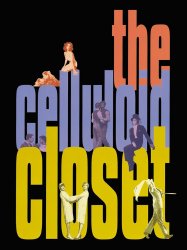
The Celluloid Closet (1996)
, 1h47Directed by Rob Epstein, Jeffrey Friedman
Origin USA
Genres Drama, Documentary, Historical
Themes Films about films, Films about sexuality, Bisexuality-related films, LGBT-related films, Documentary films about business, Documentary films about the film industry, Documentaire sur l'homosexualité, Documentary films about cities, LGBT-related films, LGBT-related film
Actors Susan Sarandon, Lily Tomlin, Armistead Maupin, Arthur Laurents, Antonio Fargas, Tom Hanks
Roles Self
Rating77%





Le film montre comment le cinéma hollywoodien a évoqué le thème de l’homosexualité, comment cette représentation a évolué au fil des ans et comment, en retour, elle a influencé la perception de l’homosexualité par le grand public.
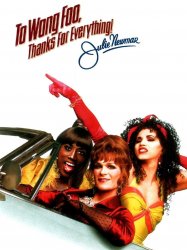 , 1h48
, 1h48Directed by Beeban Kidron
Origin USA
Genres Drama, Comedy, Comedy-drama
Themes Films about sexuality, LGBT-related films, Transgender in film, LGBT-related films, LGBT-related film, Cross-dressing in film
Actors Wesley Snipes, Patrick Swayze, John Leguizamo, Stockard Channing, Blythe Danner, Arliss Howard
Roles NY Pageant Judge
Rating67%





After tying for the win in New York's "Drag Queen of the Year" contest, Noxeema Jackson (Wesley Snipes) and Vida Boheme (Patrick Swayze) win a trip to Hollywood to take part in the even bigger, "Miss Drag Queen of America Pageant." Before they depart, Vida persuades Noxeema to take along the inexperienced "drag princess" Chi-Chi Rodriguez (John Leguizamo) as their protégé (the duo initially refer to Chi-Chi simply as a "boy in a dress" rather than as a fully-fledged drag queen). To do this, they trade in their airplane tickets for cash and buy a stylish but old Cadillac convertible with money given to them by John Jacob Jingleheimer Schmidt (Robin Williams). The three of them set off for Los Angeles by car, carrying with them an iconic photo of Julie Newmar (signed, "To Wong Foo, thanks for everything! Julie Newmar") that Vida purloined from a restaurant wall.
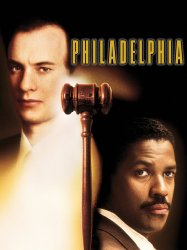
Philadelphia (1994)
, 2h5Directed by Jonathan Demme
Origin USA
Genres Drama
Themes Medical-themed films, Films about sexuality, LGBT-related films, LGBT-related films, Sida et LGBT, HIV/AIDS in film, LGBT-related film
Actors Tom Hanks, Denzel Washington, Jason Robards, Mary Steenburgen, Antonio Banderas, Joanne Woodward
Roles Guest at Party (uncredited)
Rating77%





Andrew Beckett (Tom Hanks) is a Senior Associate at the largest corporate law firm in Philadelphia. Beckett hides his homosexuality and his status as an AIDS patient from the other members of the law firm. On the day Beckett is assigned the firm's newest and most important case, a partner in the firm notices a lesion on Beckett's forehead. Although Beckett attributes the lesion to a racquetball injury, it is actually due to Kaposi's Sarcoma, a form of cancer marked by multiple tumors on the lymph nodes and skin.
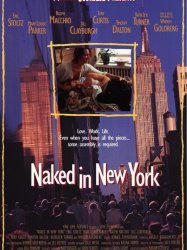
Naked in New York (1993)
, 1h31Origin USA
Genres Comedy, Romantic comedy, Romance
Themes Films about writers, Films about sexuality, Films about television, LGBT-related films, LGBT-related films, LGBT-related film
Actors Mary-Louise Parker, Ralph Macchio, Eric Stoltz, Jill Clayburgh, Tony Curtis, Timothy Dalton
Roles Self
Rating55%





The film is narrated in flashback by Jake Briggs (Eric Stoltz), a young aspiring playwright, culminating in the production of one of his plays off-Broadway by agent Carl Fisher (Tony Curtis). The play is a flop, at least in part because the lead parts are given to two actors, Dana Coles and Jason Brett (Kathleen Turner and Chris Noth), who are "not right" for the roles. Along the journey, Jake reviews his relationships with girlfriend Joanne (Mary-Louise Parker), best friend Chris (Ralph Macchio), his mother Shirley (Jill Clayburgh), and his mostly absentee father Roman (Paul Guilfoyle). The film ends with Jake and Joanne going their separate ways, mostly because of competing career goals, and Jake hoping to write more plays with greater success.
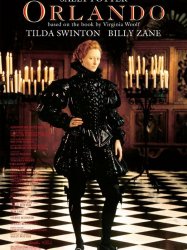
Orlando (1992)
, 1h33Directed by Sally Potter
Origin United-kingdom
Genres Drama, Science fiction, Fantasy, Historical, Romance
Themes Feminist films, Films about sexuality, LGBT-related films, Transgender in film, Political films, LGBT-related films, Films about royalty, LGBT-related film
Actors Tilda Swinton, Billy Zane, Quentin Crisp, Lothaire Bluteau, John Wood, Charlotte Valandrey
Roles Queen Elizabeth I
Rating70%





The film begins in the Elizabethan era shortly before the death of Queen Elizabeth I. On her deathbed, Elizabeth promises an androgynous young nobleman named Orlando a large tract of land and a castle built on it along with a generous monetary gift which she will only bequeath to him if he consents to her command, "Do not fade. Do not wither. Do not grow old." Both he and his heirs will keep the land and inheritance forever. Orlando acquiesces and resides in splendid isolation in the castle for a couple of centuries, during which time he dabbles in poetry and art. His attempts to befriend a celebrated poet, however, backfire when the poet ridicules his verse. Orlando then travels to Constantinople as British ambassador to the Turks, but he is almost killed in a diplomatic fracas there. Waking up the next morning, he learns something even more startling: he has physically transformed into a woman overnight.
 , 1h27
, 1h27Actors Quentin Crisp, Kathy Najimy, Shirley Stoler
Roles Pat the Doorman
Topsy (Steve Gunderson) and Bunker (Paul Robertson), two outcasts living in a run-down, fleabag hotel in pre-Giuliani New York. Ensconced in their Manhattan neighborhood, where the present seemingly is out of sync with the overarching, socially defined reality of The City at large, the two misfits pass the time of their times in a fugue. Weaving fantasies of ever more complicated deviousness, they are shocked when, one night, one of their mind games goes horribly wrong and results in the death of Grace (Shirley Stoler), one of the locals.
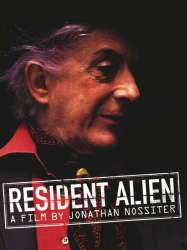
Resident Alien (1990)
Directed by Jonathan Nossiter
Genres Documentary
Themes Films about sexuality, LGBT-related films, Documentary films about cities, LGBT-related films, LGBT-related film
Actors Quentin Crisp, Sting, John Hurt, Holly Woodlawn, Paul Morrissey, Fran Lebowitz
Roles Self
Rating67%





At age 73, writer and melancholy master of the bon mot, Quentin Crisp (1908–1999), became an Englishman in New York. John Foster's camera follows Crisp about the streets of Manhattan, where Crisp seems very much at home, wearing eye shadow, appearing on a makeshift stage, making and repeating wry observations, talking to John Hurt (who played Crisp in the autobiographical TV movie, "The Naked Civil Servant"), and dining with friends. Others who know Crisp comment on him, on his life as an openly gay man with an effeminate manner, and on his place in the history of gays' social struggle. The portrait that emerges is one of wit and of suffering.

Romeo.Juliet (1990)
, 2h10Themes Films about animals, Films about cats, Romeo and Juliet, Films based on plays, Films based on works by William Shakespeare
Actors John Hurt, Robert Powell, Francesca Annis, Vanessa Redgrave, Ben Kingsley, Quentin Crisp
Rating71%





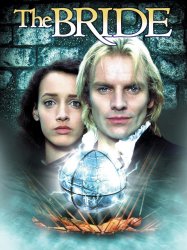
The Bride (1985)
, 1h54Directed by Franc Roddam
Origin USA
Genres Drama, Science fiction, Fantasy, Horror, Romance
Themes Films about computing, Films based on science fiction novels, Frankenstein films, Cyberpunk films
Actors Sting, Jennifer Beals, Clancy Brown, Geraldine Page, Anthony Higgins, David Rappaport
Roles Dr Zahlus
Rating54%





The film begins with Baron Charles Frankenstein (Sting), his monster (Clancy Brown), Dr. Zalhus (Quentin Crisp), and his assistant Paulus (Timothy Spall) creating a female mate named Eva (Jennifer Beals) for the monster. Eva is physically identical to a human and lacking the deformities of the monster. As such, she is revolted by the monster and rejects him. This causes the monster to fly into a rage and destroy Frankenstein's laboratory. Frankenstein, believing himself and Eva to be the only survivors, flees with her back to Castle Frankenstein. He tells everyone, including Eva, that she was an amnesiac he found in the woods. There he decides to take Eva for himself and pursues the goal of making her a perfect human mate.

The Naked Civil Servant (1975)
, 1h17Directed by Jack Gold
Origin United-kingdom
Genres Drama, Biography, Comedy
Themes Films about sexuality, LGBT-related films, LGBT-related films, LGBT-related film
Actors John Hurt, John Rhys-Davies, Quentin Crisp, Katherine Schofield, Colin Higgins, Patricia Hodge
Roles Himself
Rating78%





Homosexuel efféminé dans la société britannique intolérante des années 1930, Quentin Crisp décide de laisser libre cours à sa personnalité flamboyante. Ses tenues et son maquillage, ainsi que son humour, amènent les gens à le remarquer et l'accepter.
Scriptwriter

The Naked Civil Servant (1975)
, 1h17Directed by Jack Gold
Origin United-kingdom
Genres Drama, Biography, Comedy
Themes Films about sexuality, LGBT-related films, LGBT-related films, LGBT-related film
Actors John Hurt, John Rhys-Davies, Quentin Crisp, Katherine Schofield, Colin Higgins, Patricia Hodge
Roles Writer
Rating78%





Homosexuel efféminé dans la société britannique intolérante des années 1930, Quentin Crisp décide de laisser libre cours à sa personnalité flamboyante. Ses tenues et son maquillage, ainsi que son humour, amènent les gens à le remarquer et l'accepter.
 Connection
Connection

